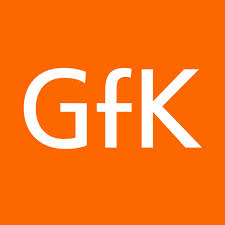 Findings of the GfK Consumer Climate study for Germany for June 2013
Findings of the GfK Consumer Climate study for Germany for June 2013
Nuremberg, 26 June 2013 – German consumers continued to be in an optimistic mood at the onset of summer. Economic and income expectations increased further, but willingness to buy fell slightly at an extremely high level. Following a value of 6.5 points in June, the overall indicator is forecasting 6.8 points for July.
Optimism appears to be unbroken. The income outlook of Germans has improved further from an already high level on account of the stable employment situation and good collective bargaining agreements, which have also benefited economic expectations. In contrast, willingness to buy dropped slightly this month, but still remained at an extremely good level. The upward trend in the consumer climate is also enhanced by the continually falling propensity to save, which has reached a record low.
Economic expectations: upwards without momentum
In June, economic expectations once again increased by 1.3 points. The indicator is currently at 1.1 points. It has therefore returned to a positive value and is above the long-term average of 0 points, but still below the previous year’s value of 3 points. Consumers evidently share the opinion of many experts that the German economy will only recover slowly. The main factor currently preventing stronger momentum is the lack of positive signals from abroad. In general, the global economy is weak and many countries in the eurozone are still deep in recession. This is not good news for Germany, which is a strongly export-oriented country. Companies are also expecting the economic situation to improve, which is reflected in the fact that the ifo Business Climate Index increased for the second time consecutively. However, it remains to be seen what impact the flood disaster in Bavaria and East Germany will have on the economic mood. At the time of the survey, the full extent of the disaster and its consequences could not yet be predicted.
Income expectations: upturn
In the same way as economic expectations, income expectations also improved. This is the third consecutive increase and the indicator is now at 36.2 points following the 2.3 point rise. Consequently, there is an upward trend in income expectations.
The reasons for this optimism are obvious because despite the financial and debt crises, the labor market in Germany is exceedingly robust. While many eurozone countries again and again report reaching new record levels of unemployment, Germany is the only nation in Europe where there are considerably fewer people without jobs than there were before the crisis in 2007. The stable labor market is evidently fuelling hopes for increases in income. Collective bargaining agreements in recent months have proven that this confidence is appropriate. Inflation is currently also very moderate, which is a positive indicator for the development of purchasing power.
Willingness to buy: stable at very high level
In contrast to economic and income expectations, willingness to buy fell slightly in June. However, the decrease of 1.2 points is very modest and at 36.5 points, the indicator remains at an extremely high level. In fact, the indicator is up almost 4 points when compared with the same period of the previous year.
In view of the historically low interest rates, saving is currently not an attractive prospect. The stable labor market and expected salary increases have strengthened consumer confidence that developments in financial situations will continue to be positive. This is resulting in planning security, which is needed for consumers to make major purchases. Germans are more prepared to make large-scale purchases with a long-term outlook. This is reflected in the real estate sector as extremely favorable conditions are currently being offered for loans and mortgages.
Consumer climate: upward trend stabilizing
Following a value of 6.5 points in June, the overall indicator is forecasting 6.8 points for July 2013. This is the highest value since September 2007 (7.3 points). Private consumption constitutes almost 60 percent of Germany’s gross domestic product and is the stabilizing factor in the economy. If consumption had also weakened in Germany, it too would have fallen into recession over the last few months. There is currently a shortage of very positive signals both in terms of investments and net exports. GfK therefore confirms its forecast issued at the start of the year that private consumption spending will increase by around one percent in real terms.
A prerequisite is that the debt crisis does not escalate further, but that it will gradually reach the point of a lasting solution being found. However, if this is not the case, then consumers’ confidence in future economic development will suffer in the long term. The domestic economy would then also face difficult times.
These findings are extracts from the “GfK Consumer Climate MAXX survey”, which is based on around 2,000 consumer interviews conducted each month on behalf of the European Commission. The report contains charts, forecasts and a detailed commentary regarding the indicators. In addition, the report includes information on proposed consumer spending in 20 different areas of the consumer goods and services markets. The GfK Consumer Climate survey has been conducted since 1980.
About GfK
GfK is one of the world’s largest research companies, with around 13,000 experts working to discover new insights into the way people live, think and shop, in over 100 markets, every day. GfK is constantly innovating and using the latest technologies and the smartest methodologies to give its clients the clearest understanding of the most important people in the world: their customers. In 2012, GfK’s sales amounted to €1.51 billion.
To find out more, visit www.gfk.com
